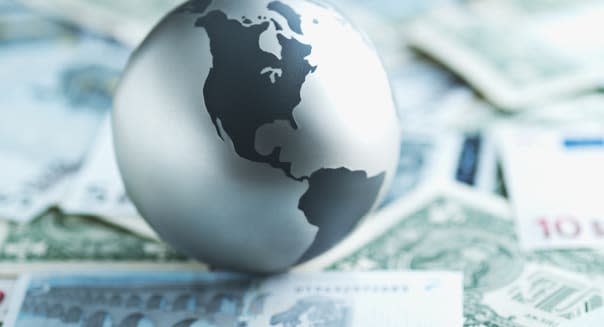9 Smart Uses for Leftover Foreign Currency

By Susan Johnston Taylor
Traveling internationally?
Unless you're meticulous at forecasting travel costs and only withdraw the precise amount of cash you'll need, it's likely you'll return stateside with a pocket full of euros or yen. Most foreign exchange servicesdon't accept smaller denominations, so you could blow your change on an airport latte or keep foreign coins in a drawer awaiting your next overseas adventure (if it's a common currency like the euro, that may not be a bad idea).
Here's a look at some savvy alternatives.
1. Apply it to your hotel bill. Before you leave for the airport, "apply whatever currency you have remaining to your hotel bill, and then cover the rest with your credit card," suggests Patti Reddi, the founder and writer behind TheSavvyGlobetrotter.com.
2. Exchange for gift cards. If you're in California, you can exchange Canadian dollars, Swiss francs, Japanese yen, euros and British pounds for gift cards in U.S. dollars to retailers including Shutterfly, Staples and Overstock at the Leftovercash kiosk at the South Bay Galleria mall in Los Angeles (the company plans to expand into other locations in the future). There's a flat transaction fee of $3.99. "We're trying to make it economical and feasible to do the conversion," says Leftovercash founder Ferdinand Poon. "We're able to take five different currencies at once, and it's really unique in this business to be able to deal with coins."
3. Load it on a Starbucks card. If you don't live near the Leftovercash kiosk, but you're a coffee lover, you can stop at a Starbucks toward the end of your trip and load your leftover currency onto a Starbucks card. "Once you get home, the money converts back to the currency you normally use, and you don't pay any additional fees," says David Bakke, an expert at the financial blog MoneyCrashers.com. Note that Starbucks cards can be used interchangeably at most stores in North America, Australia, Hong Kong, Ireland, Mexico and the U.K., but stores in some European and Asian countries only accept cards issued in that country. (If you're in one of those countries, you could leave extra coins in the tip jar.)
4. Share with kids. Giving foreign coins to kids (either as a souvenir or a gift from the tooth fairy – no more comparisons to schoolmates who get $5 per tooth!) can help open their eyes to the wider world. "I bring foreign coins and small bills home to my children," says Holly Johnson, a U.S. News travel contributor and founder of the blog TravelBlueBook.com. "It helps them learn about other cultures and piques their curiosity about governments and lifestyles abroad."
5. Give to local teachers. If you don't have kids or your kids aren't the right age to appreciate foreign currency, consider giving small amounts to a local teacher. "With globalization and the current political situation ... it seems really critical to foster understanding and appreciation of foreign cultures," says Sally Elizabeth, a mother of two who works for online dispute resolution company PeopleClaim.com and receives unusual foreign coins when the company's CEO travels for business. "It's particularly great when you have currency from an uncommon destination like Oman [or] Mongolia or the Seychelles. And teachers are always happy if you'll accompany the money into the classroom and give a quick talk. Personal experiences trump everything."
6. Donate at the airport or in-flight. Many airlines and airports collect currency as donations. About a dozen airlines participate in the Change for Good program, which raises funds for UNICEF.
7. Make magnets. Glue a magnet to the back of a coin to remind yourself of all the exotic places you've been – or give as gifts for that hard-to-shop-for jetsetter on your list. "Our favorite thing to do with leftover foreign coins is to make magnets out of them for the refrigerator," says Karilyn Owen, who founded the family travel blog NoBackHome.com. "In the past 15 years of travel, we now have many coins from countries [that] no longer have their own currency and coins that have since been updated. It's a beautiful collection!"
8. Find someone traveling to that destination. You could give a small amount of pesos to a friend planning a trip to Mexico or sell larger amounts if you have them. "I work at a large corporation and have a standing offer that I'll buy leftover euro notes and coins from anyone who is coming back from Europe," says Lance Longwell, who writes the TravelAddicts.net blog with his wife, Laura. "My wife and I travel frequently to Europe, so we're always using them. It's really a win-win: colleagues can get rid of excess currency, and we buy it off them at very favorable exchange rates." Online travel forums are another way to connect with travelers looking to buy or sell excess currency, and coin shops may be interested in unusual foreign coins as well.
9. Save for crafts. When Monica Williams, who now works in digital marketing in Philadelphia, returned from a two-year around-the-world trip, she amassed quite a collection of foreign currency. She used some of it make wine charms and jewelry which she sold on Etsy.com and sold some to other crafters. "After friends of mine started using some to make more elaborate art projects than I'm able, I started selling my currency on online sites to others who might want to do the same," she says, "so I wound up making a few dollars."
The best use for you depends on how much currency you have and whether you're likely to return to that country. But having options beyond throwing coins and bills in a drawer for later means you can get more value out of money that might otherwise go to waste.
